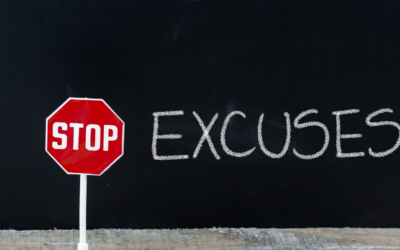Communication is an integral part of our everyday lives. It influences every aspect of our interactions, from personal relationships to professional settings. The quality of our communication can affect the success of our personal and professional relationships and shape our self-image. Therefore, it is critical to understand and discover Your Communication Strengths and Weaknesses.
Understanding the Importance of Effective Communication
Effective communication is so crucial that it underlies the success of almost everything we do in life. It's not just about conveying a message – it's about understanding the emotions and intentions behind the information.
When communicating effectively, we can express ourselves clearly and concisely, ensuring that the recipient understands our message. This is particularly important in personal relationships and the workplace, where miscommunication can lead to misunderstandings and conflicts.
The Role of Communication in Personal Relationships
Communication forms the foundation of all our relationships. Whether it's expressing love, resolving conflicts, or sharing our thoughts and feelings, transparent and open communication creates a basis for understanding and connecting with others.
When we communicate effectively in our relationships, we can express our needs and desires, listen actively to our partners, and navigate through challenges together. This strengthens the bond between individuals and fosters a sense of trust and intimacy.
Effective communication also fosters mutual respect and trust–strengthening bonds and contributing to more fulfilling and healthier relationships. It allows us to truly understand the thoughts and feelings of our loved ones, creating a sense of empathy and support.
The Impact of Communication in the Workplace
Within a corporate context, effective communication aids in managing employees, reducing misunderstandings, boosting team morale, and enhancing productivity.
When communication is clear and concise in the workplace, employees can understand their roles and responsibilities, increasing efficiency and productivity. It also promotes a positive work environment where colleagues feel comfortable expressing their ideas and concerns.
Ineffective or poor communication, on the other hand, can lead to problems such as conflict, decreased job satisfaction, and lower employee performance. Misunderstandings can arise when messages are not conveyed accurately, resulting in confusion and frustration among team members.
The impact of these issues highlights the importance of understanding one's communication strengths and weaknesses. By recognizing and improving upon areas of weakness, individuals can become more effective communicators, leading to better relationships, increased productivity, and overall success in the workplace.
Identifying Your Communication Strengths
Discovering your communication strengths is crucial to becoming a more effective communicator. Your strengths could be your listening skills or your ability to explain complex ideas clearly, among others.
Effective communication is a vital skill in both personal and professional settings. It lets you convey your thoughts and ideas clearly, build strong relationships, and resolve conflicts. By identifying and leveraging your communication strengths, you can enhance your overall ability to connect with others and achieve your goals.
Recognizing Your Natural Communication Skills
Natural strengths in communication may manifest in various ways. Some people are excellent at active listening, while others excel in verbal communication. Some individuals are great at reading body language, and others have innate empathy that allows them to understand others' feelings.
Active listening is a skill that involves entirely focusing on and comprehending the speaker's message. It requires being present in the moment, avoiding distractions, and providing feedback to ensure understanding. Verbal communication, on the other hand, involves articulating thoughts and ideas clearly and effectively using words. It encompasses not only the words themselves but also tone, pitch, and pace.
Body language plays a significant role in communication, conveying emotions, intentions, and attitudes. Reading and interpreting body language accurately can provide valuable insights into a person's thoughts and feelings, enhancing your ability to connect with them. Empathy, a fundamental aspect of communication, involves understanding and sharing the emotions of others. It allows you to establish rapport, show support, and foster trust.
Acknowledging these skills can be the foundation for building your communication prowess. By recognizing and appreciating your natural strengths, you can focus on enhancing and refining them to become an even more effective communicator.

How to Leverage Your Communication Strengths
Once you've identified your strengths, the next step is to leverage them to enhance your communication. This could mean practicing active listening, maximizing your ability to explain complex ideas, or honing your non-verbal communication skills.
Active listening can be further developed by engaging in exercises that improve concentration and attention to detail. This may involve eliminating distractions, such as turning off electronic devices or finding a quiet space for meaningful conversations. Additionally, seeking feedback from others can help you gauge your listening skills and identify areas for improvement.
Explaining complex ideas clearly is a valuable skill that can be honed through practice. Breaking down complex concepts into simpler terms, using visual aids, and providing real-life examples can enhance your ability to convey information effectively. Additionally, seeking opportunities to present and teach others can further strengthen your communication skills in this area.
Non-verbal communication encompasses body language, facial expressions, gestures, and posture. By becoming more aware of your non-verbal cues and how others may perceive them, you can ensure that your message aligns with your intended meaning. Observing and studying the non-verbal cues of others can also provide valuable insights into their thoughts and feelings.
Remember that effective communication is a continuous process of learning and growth. By leveraging your strengths and actively working on areas for improvement, you can become a more confident and influential communicator.
Acknowledging Your Communication Weaknesses
We all have areas of communication where we could improve. Recognizing these weaknesses is essential, enabling us to turn them into strengths.
Communication is a fundamental aspect of human interaction. It allows us to express our thoughts, feelings, and ideas and connect with others more deeply. However, it is not always easy to communicate effectively. We may find ourselves stumbling over our words, struggling to convey our message clearly, or failing to truly listen to what others are saying.
One common communication pitfall is not listening actively. Often, we are so focused on what we want to say next that we fail to hear what the other person is saying honestly. This can lead to misunderstandings and missed opportunities for connection. To avoid this pitfall, it is essential to practice active listening. This means giving your full attention to the speaker, maintaining eye contact, and asking clarifying questions to ensure understanding.
To be Clear is to be Kind
Another common pitfall is speaking unclearly. Sometimes, we may rush through our words or fail to articulate our thoughts clearly, leaving others confused or unsure of what we mean. To avoid this, it is essential to take the time to organize your thoughts before speaking and to speak slowly and clearly. Using concise and precise language can also help ensure your message is understood.
Non-verbal cues, such as body language and facial expressions, also play a crucial role in communication. However, many people fail to use these cues effectively. They may unintentionally give off signals that contradict their words, leading to confusion or mistrust. To avoid this pitfall, you must be aware of your body language and facial expressions and ensure they align with your verbal message. Maintaining an open and relaxed posture, making eye contact, and using appropriate gestures can all help to enhance your non-verbal communication.
Common Communication Pitfalls and How to Avoid Them
Common communication pitfalls include not listening actively, speaking unclearly, or not using non-verbal cues effectively. Avoiding these pitfalls involves engaging in thoughtful, focused conversations where you actively listen and use your non-verbal cues to ensure understanding.
Active listening is a skill that can be developed with practice. It involves giving your full attention to the speaker, demonstrating empathy, and providing feedback to show you are actively engaged in the conversation. By actively listening, you better understandhttps://corethos.com/how-your-businesses-can-leverage-ai-and-automation-for-growth/ the speaker's message, show respect, and create a positive communication environment.
Speaking clearly is essential for effective communication. Taking the time to organize your thoughts and speaking at a moderate pace can help ensure that your message is delivered clearly and accurately. It is also essential to be mindful of your tone of voice, as it can significantly impact how your message is received. Speaking calmly and confidently can help convey your message more effectively.
Non-verbal cues can often speak louder than words. They can convey emotions, attitudes, and intentions and can significantly influence how your message is interpreted. Awareness of your body language and facial expressions can help ensure that your non-verbal cues align with your verbal message. For example, maintaining eye contact can show attentiveness and interest, while crossing your arms may indicate defensiveness or disengagement.
The Impact of Weak Communication Skills on Your Personal and Professional Life
Weak communication skills can affect both your personal and professional life. They can lead to misunderstandings, negatively impact relationships, and hinder progress in your career. Poor communication can result in conflicts in personal relationships, as messages may be misinterpreted or feelings may not be effectively expressed. This can strain relationships and create unnecessary tension.
In a professional setting, weak communication skills can hinder collaboration and productivity. Misunderstandings or lack of clarity can lead to mistakes or missed deadlines. Additionally, ineffective communication can prevent you from effectively conveying your ideas or persuading others, limiting your opportunities for career advancement.
Acknowledging and improving your weak areas paved the way for more potent and effective communication. Developing good communication skills takes time and effort, but the benefits are worth it. Improved communication can lead to better relationships, increased productivity, and tremendous success in both your personal and professional life.

Strategies for Improving Your Communication Skills
Improving your communication skills is a continual journey. It involves both awareness and dedicated effort.
Active Listening: A Key Component of Effective Communication
Active listening implies an intent to understand rather than just hear. It requires listening to the words, observing non-verbal cues, and giving appropriate feedback.
The Power of Non-Verbal Communication
Non-verbal communication includes facial expressions, body language, and tone of voice. It's important to remember that your non-verbal actions can fully reveal your genuine thoughts and feelings.
Enhancing Your Communication Skills Through Feedback
Feedback is a powerful tool for improving communication skills. By seeking feedback and practicing regularly, you can refine your communication skills, enhance understanding, and build trust with others.
The Journey Towards Better Communication
The path to becoming a better communicator is a journey, not a destination. It requires patience, understanding, and persistence.
Setting Realistic Goals for Communication Improvement
Setting attainable goals is a crucial step in improving communication. Plans provide focus, motivate ongoing learning and practice, and present a benchmark for measuring progress.
Celebrating Progress and Maintaining Momentum in Your Communication Journey
Improving your communication skills is a long-term commitment. Celebrating your progress is essential to maintaining motivation and momentum in this ongoing journey. Recognize each milestone, no matter how small, and use it as a stepping stone toward better communication.
Discovering your communication strengths and weaknesses is beneficial and crucial to overall success in personal and professional relationships. By understanding and leveraging your strengths, acknowledging and improving your weaknesses, and applying effective strategies, you can enhance your communication abilities and thrive in your interactions with others.
Explore the Path to Success with CorEthos
Thank you for journeying with us through this exploration of ideas. Your presence here is a testament to a shared passion for reimagining business, and it resonates with the very essence of CorEthos: bringing humanity back to business.
Perhaps the curiosity that brought you here still burns brightly, yearning for further discovery. In that case, we invite you to delve into our blog, where each article opens new doors to understanding, insight, and growth. They are tailored to leaders like you, eager to unravel the complex tapestry of today's business world.
If you find yourself intrigued by the delicate science behind communication and leadership, why not embark on a journey of discovery with our newsletter? Subscribing is like opening a treasure chest filled with wisdom that connects you to the essence of collaboration and community.
Intensify Your Leadership Journey with Our Mastermind Program
Our newly launched Mastermind Program provides a focused setting for tackling challenges like honing effectiveness, inspiring your team, and mastering the art of delegation. It's a unique space where business acumen meets human-centered values, delivered with the same quality and integrity you've come to expect from CorEthos. Ready to dive deeper into your leadership potential?
We Would Love to Get to Know Your Challenges Better!
Challenges in business? We see them not as stumbling blocks but as opportunities for transformation. Your unique path awaits, and it begins with a complimentary consultation with CorEthos. We'll build bridges over obstacles and forge a trail to success, leveraging our three foundational pillars.
Your adventure with CorEthos doesn't have to end here. Let's continue to build, learn, and grow together, reflecting on what makes your business uniquely human. We are here to be your compass, guiding you through the challenges and celebrating the triumphs. Let's begin this exciting journey today.



